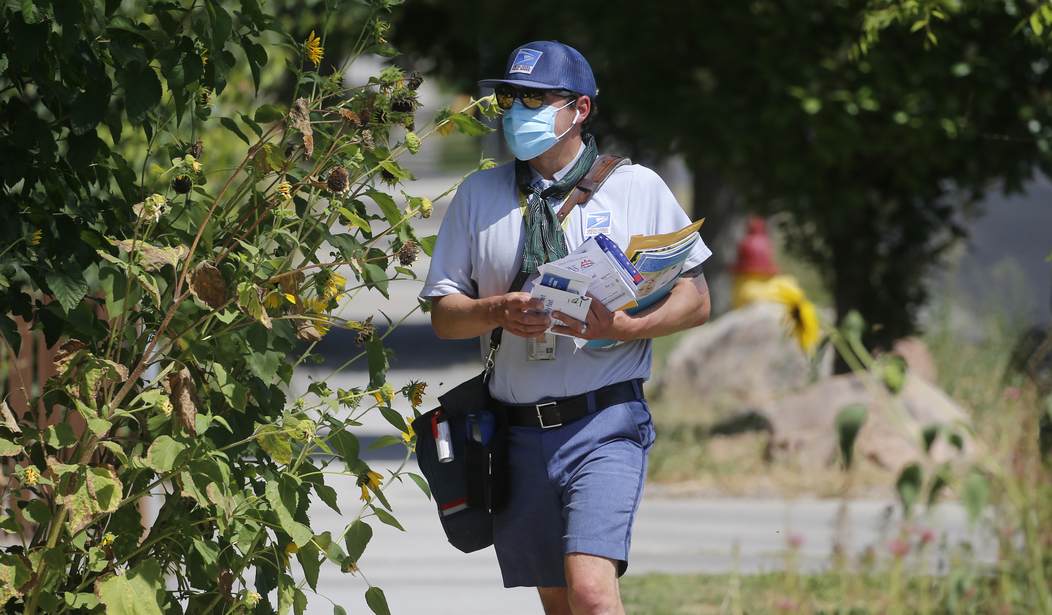Even with the pandemic, the U.S Postal Service delivered on its obligations to deliver cards and packages to family and friends during the holiday season. Now Congress is finally ready to deliver a much-needed Postal Service Reform Act (H.R. 3076, S.1720).
This legislation involves tradeoffs and compromises that won’t fully satisfy all stakeholders. But Congress should keep focused on the positive principal points of the bill and not trip over distractions some parties are throwing in its way. The proposed law would facilitate the continued expansion of e-commerce. E-commerce is a crucial lifeline during the pandemic, especially for smaller enterprises and rural communities that need reliable, affordable access to the country’s 30,000 zip codes.
Where’s the money?
We all agree the Postal Service needs improvements. Over the past 14 fiscal years it has lost $87 billion.
But there is a recent bright spot: package deliveries. Revenues in fiscal 2021 were $77 billion, up from $73.1 billion the prior year. While revenues from letter delivery, the traditional USPS cash cow, continued to decline, revenues from package deliveries and shipping in the dynamic e-commerce economy rose to $32 billion from $28.5 billion the prior year.
These package revenues come not only from customers directly using USPS services, but also from private delivery companies that pay the Postal Service to deliver an important portion of their packages. This partnership has been especially crucial during the pandemic, allowing small enterprises that often saw few or no walk-in customers to stay in operation through e-commerce.
Recommended
A forced divorce?
Section 202 is a key provision in the Reform Act before Congress. It requires USPS to continue to maintain an integrated delivery system. That means that the same carrier who brings you your letter mail can also bring your packages at the same time. Of course, this makes sense. It also is key to ensuring that the Postal Service can continue delivering to rural America.
Yet there is an economically senseless proposal pushed by United Parcel Service and others that would split the Postal Service into two units, one to deliver mail and the other to deliver packages.
Such a forced divorce would create a logistics and economic mess for the Postal Service and millions of Americans. Instead of packages and mail for each individual address being put on the same truck at the same time, sorters at local post offices and distribution facilities would need to sort the millions of mail and package items into separate bins; put them on separate trucks; devise separate delivery schedules; and figure out which drivers will drive which trucks. It’s quite possible many trucks would be half-empty if there is not enough letter mail or packages separately for particular routes. Such an arrangement is obviously much less efficient and ensures deteriorating service and much higher costs.
Not smiling.
You might smile to see the smiling face of your postal carrier twice a day as he or she makes separate visits to deliver your letter mail and your packages. But you won’t be smiling when soaring package delivery rates are passed on to you by enterprises and shippers, especially in these inflationary times. And on a tight budget, you won’t be ordering as many packages. Additionally, businesses large, and especially small, in middle America won’t be smiling as their orders decline because of those higher package rates and as e-commerce efficiency rapidly deteriorates.
Plus, the Postal Service won’t be smiling as it loses all its recent package revenue gains as its higher rates for an inefficient disintegrated delivery system drive away customers, many of whom will turn to private carriers. Finally, members of Congress won’t be smiling as they receive growing complaints from unsmiling constituents, or they face the need to bail out the Postal Service with money from those constituents in their roles as unsmiling taxpayers.
Steady ahead with reform.
Congress can avoid this mess. Postmaster General Louis DeJoy has praised the Reform Act because it gives USPS the flexibility to make the system more efficient and fiscally sounder. There are still other reform issues to be considered in the future. But it is clear that if Congress can express mail the Reform Act, it will help move the Postal Service in the right direction toward a hopefully brighter future economy.
---------------
Edward Hudgins, Ph.D., is founder of the Human Achievement Alliance and editor ofThe Last Monopoly: Privatizing the Postal Service for the Information AgeandMail @ the Millennium: Will the Postal Service Go Private?

























Join the conversation as a VIP Member